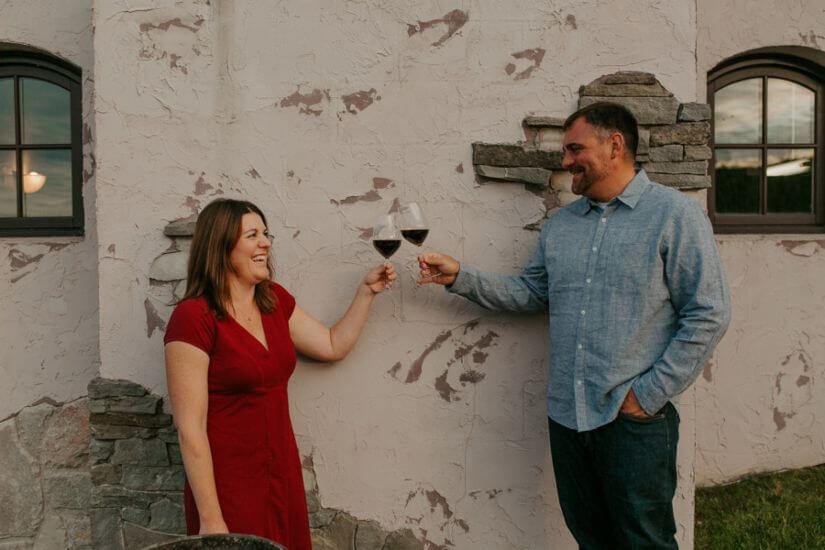

Today we’d like to introduce you to Sam Simpson.
Hi Sam, we’re thrilled to have a chance to learn your story today. So, before we get into specifics, maybe you can briefly walk us through how you got to where you are today.
I’m not sure if your story is based around Aurora Cellars or Good Harbor, but all are encompassed by Simpson Family Estates and owned and operated by my Sister Taylor Simpson and myself. We both had corporate jobs, and when our father, who was one of the original founders of the wine industry in Northern Michigan, passed away, we left the corporate world to move back and grow our family business, which has drastically expanded since moving back to the Leelanau Peninsula.
Good Harbor Vineyards History:
The Simpson family first planted their roots on the Leelanau Peninsula in the cherry industry back in the 1950s. It wasn’t until the 1970s, when John Simpson sent his son, Bruce Simpson, to attend the University of California Davis to learn about viticulture and oenology, that the thought of planting vineyards was considered. Following Bruce’s return from the University, vineyards were planted, and Good Harbor Vineyards was opened in 1980 by Bruce and his wife, Debbie. Good Harbor was the fourth winery established on the Leelanau Peninsula and remained one of four operating wineries until the mid-1990s when another handful of tasting rooms decided to open as well.
Bruce always had a great appreciation for the potential growth of the Michigan Wine Industry. In turn, he became a pioneer in the Michigan wine industry. He co-founded the Leland Business Association and the Leelanau Peninsula Vintners Association – Michigan’s first wine trail – now boasting almost 30 wineries. He also co-founded the Leland Wine Festival, now one of the state’s largest and oldest wine festivals.
Good Harbor began by producing a variety of hybrids and fruit wines while the industry was in its infancy and learning what could survive, grow, and thrive on the Leelanau Peninsula. As the years passed and more research was conducted, an increasing amount of vinifera was planted, and the clones of those varieties were refined to ensure success. Today, Good Harbor dedicates its 125 acres of prime vineyard sites to growing and producing Riesling, Chardonnay, Pinot Grigio, Gruner Veltliner, and Pinot Noir. There is also an assortment of Merlot, Pinot Blanc, Sauvignon Blanc, Zweigelt, Lemberger, and Cabernet Franc that are grown in much smaller quantities.
Good Harbor Vineyards is now owned and operated by the second-generation siblings Sam and Taylor Simpson. A Spartan alum, Sam’s background is in viticulture, enology, finance, and economics. Taylor, a Wolverine, brings deep wine sales, distribution, and marketing experience from her years working at the largest wine and spirits distributor in the world. While gameday competition in the Simpson household can get fierce, both siblings have hopes of continuing the family legacy and helping with the growth of the Michigan wine industry. The vision for the business is to provide a variety of avenues and diverse options for people to enter, grow, and thrive in the wine industry. The siblings are committed to building upon the foundation of what their grandparents and parents started and hope to be able to grow a business that their families can carry on into the future.
Would you say it’s been a smooth road, and if not, what are some of the biggest challenges you’ve faced along the way?
I would not say it has been a smooth road to get where we are today. When we moved back to Northern Michigan, we were unprepared for the transition and hard choices that needed to be made to restructure the existing business so it could grow. At that point, I was 22 years old, and Taylor was 28, and we were making decisions that were likely larger than we released at the point we were making them. The one thing that has been consistent in our journey has been that we have been family-focused and made sure that we always put that ahead of business. Our first major structural decision in 2010 was to exit the cherry farming business, which accounted for a very healthy percentage of revenue at that point, so we could just focus on the wine business. In hindsight, it was the correct decision, but at the time, it was a very difficult decision. I knew that it was a responsibility that I was going to have to oversee and recognized that it wasn’t a strength of mine and we didn’t have any competitive advantage in that market.
Alright, so let’s switch gears a bit and talk business. What should we know?
Simpson Family Estates is a collection of agriculturally based businesses that primarily focuses on the Michigan Wine Industry. We own and operate Good Harbor Vineyards, Aurora Cellars, and Harbor Hill Fruit Farms. We are a farming-first organization that is structured around expanding value-added Michigan production. We believe strongly that to keep Michigan farmers competitively positioned; we need to produce and promote products and services that drive distinctive regional value so we aren’t competing directly against international products that have lower structural costs than we could achieve. Our brands are distinctively Northern Michigan, and all of our vineyards are within two miles of Lake Michigan and benefit from the moderating effects of the water. We control every aspect of the process, from planting the vines to bottling the wine, and have had decades to refine our systems and vineyards. I’m personally most proud of the fact that we have not deviated from our original focus on being agriculturally focused first, as there are much less capital-intensive ways to grow your business, but we strongly believe that our customers are loyal because they know they are going to consistently get an authentic product.
We’d love to hear about what you think about risk-taking.
Risk and risk management are integral in an agriculturally based organization. The risk management has to be structurally built into your organization to know that occasionally, we are going to have 100% loss of our largest input. We have quite a few different avenues of revenue that have potential to offset these losses and tend to put up larger inventories in good years. We have consistently invested in efficiencies across the processing side of the business to drive our inputs per case down because you need to have a higher margin structure to operate vertically the way we do.
We view risks as unavoidable and try to put them into buckets to control that allow us to continue operating in bad years and investing in good years.
Contact Info:
- Website: www.goodharbor.com, www.auroracellars.com, www.harborhillmi.com, www.simpsonfamilyestates.com
- Facebook: https://www.facebook.com/GoodHarborWine, https://www.facebook.com/auroracellars
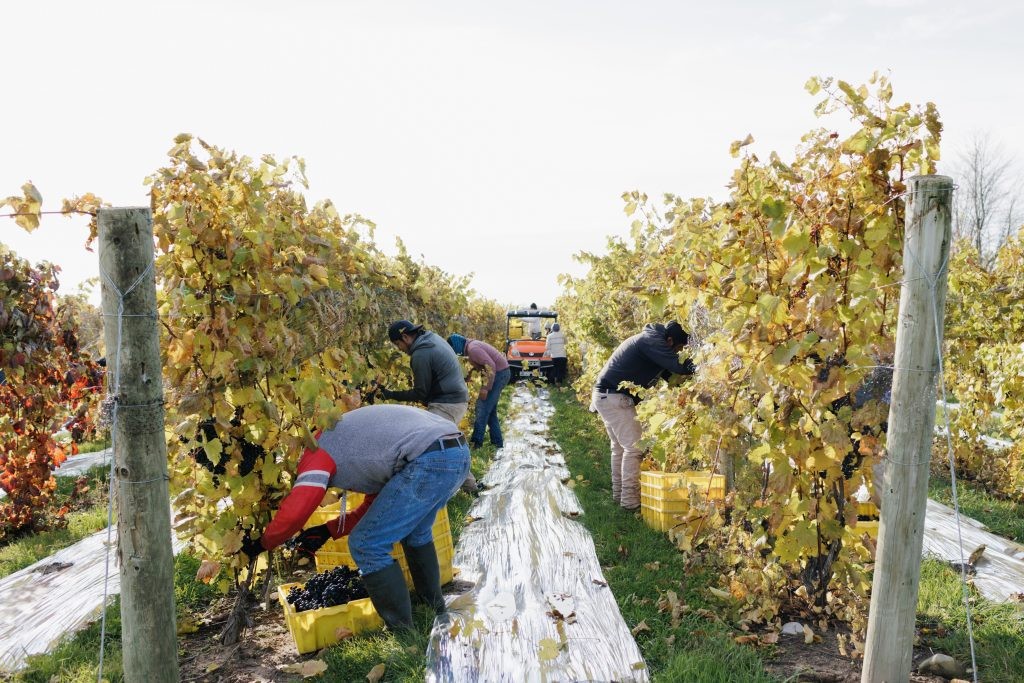
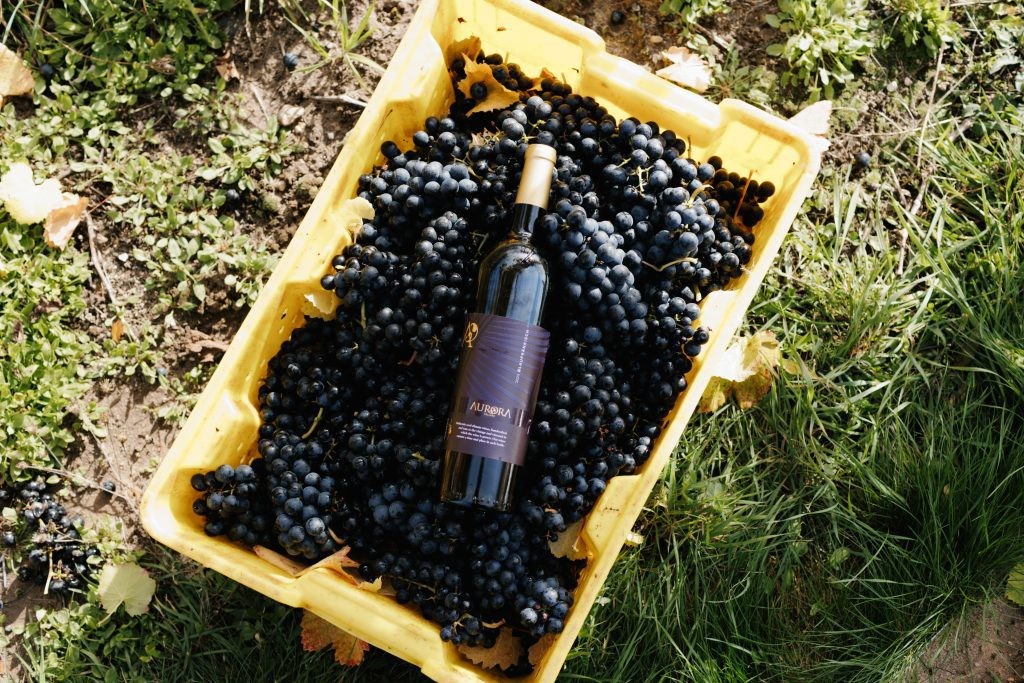
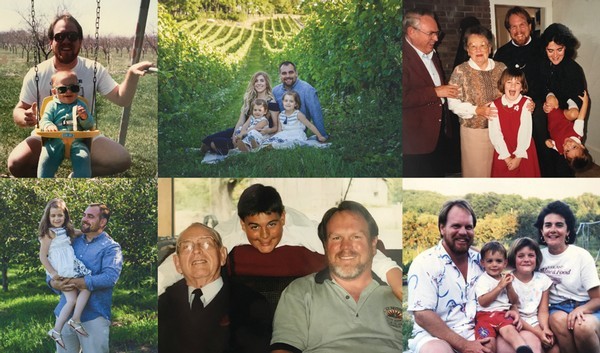
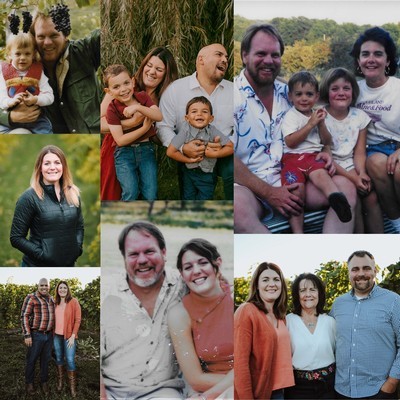
Image Credits
Meg Simpson
Shannon Scott











